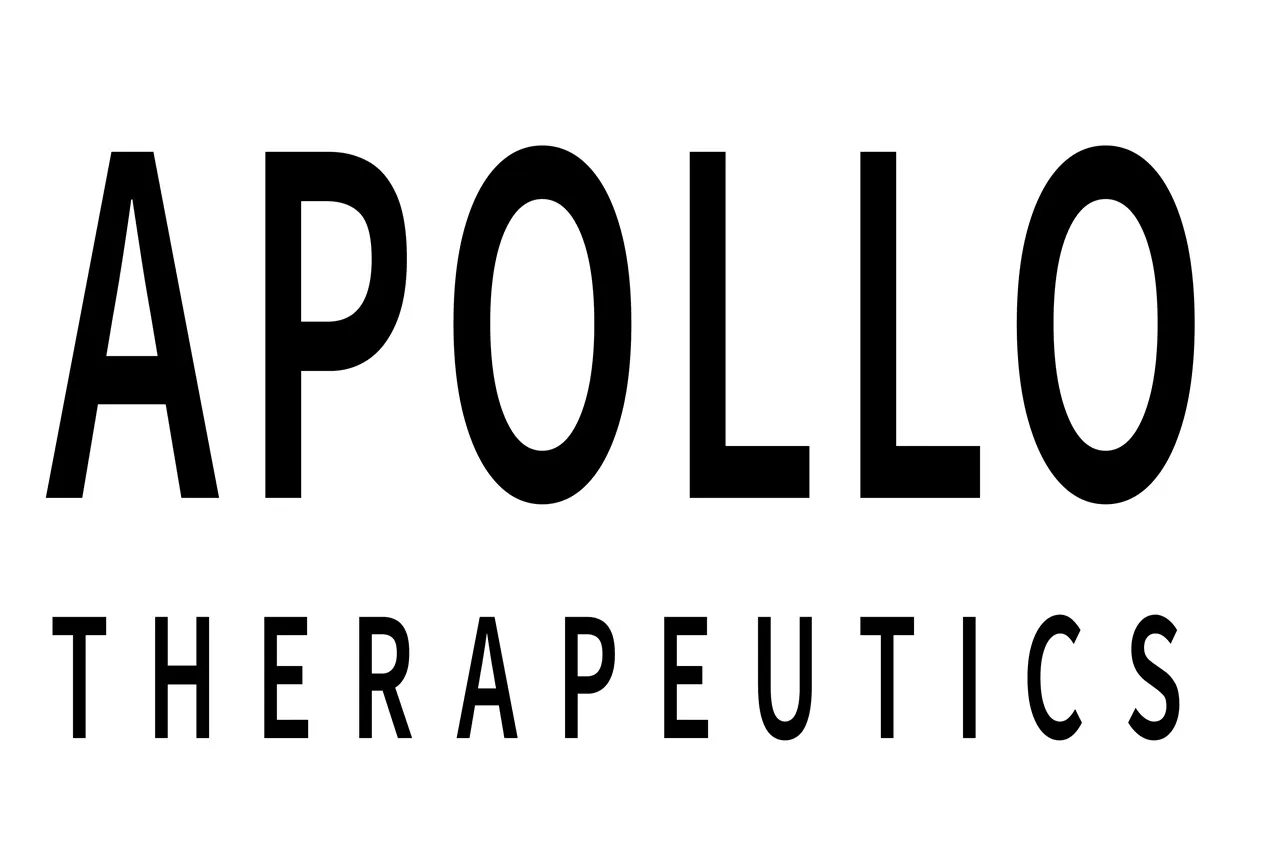
Apollo Therapeutics Reports Positive Phase 2a Results for Camoteskimab in Atopic Dermatitis
Apollo Therapeutics, a leading portfolio biopharmaceutical company, announced today positive topline results from its Phase 2a CHAMELEON trial evaluating camoteskimab, an investigational anti-IL-18 monoclonal antibody, in patients with moderate-to-severe atopic dermatitis (AD). The 32-week trial, conducted across clinical sites in the United States and Canada, provides compelling evidence of both efficacy and safety, reinforcing the potential of camoteskimab as a differentiated therapy in a highly competitive field of dermatology.
The CHAMELEON trial (NCT06436183) was designed as a randomized, double-blind, placebo-controlled study involving 62 patients. Camoteskimab utilizes an antibody recycling mechanism to degrade interleukin-18 (IL-18), a pro-inflammatory cytokine implicated in epithelial barrier dysfunction and immune dysregulation. By targeting IL-18, camoteskimab addresses inflammation across multiple immune pathways, including Th1, Th2, Th17, and Th22—offering a broader mechanism of action than currently approved Th2-specific biologics.
Key Efficacy Findings
The trial successfully met its primary endpoint, achieving a statistically significant reduction in the Eczema Area and Severity Index (EASI) percentage change from baseline (PCFB) at Week 16 compared with placebo. Improvements were observed early, with EASI scores separating from placebo as soon as Week 4, highlighting camoteskimab’s rapid onset of action.
Notably, treatment responses deepened over time. Patients receiving camoteskimab continued to show improvement beyond Week 16, with higher proportions achieving IGA (Investigator’s Global Assessment) 0/1 and EASI-75 responder rates. These responses were durable, maintained through the end of the study at Week 32, suggesting sustained clinical benefit.
A particularly important finding was the efficacy in patients who had previously failed Th2-specific therapies such as anti-IL-13 or anti-IL-4 biologics. All such participants experienced clinically meaningful improvements in EASI and IGA scores when treated with camoteskimab. This result underscores the relevance of IL-18 in AD pathology and demonstrates camoteskimab’s potential to serve as an alternative for patients unresponsive to existing biologics.
Safety and Tolerability
The therapy was extremely well tolerated, with no treatment-related serious adverse events or discontinuations reported. Importantly, there were no cases of conjunctivitis, mouth ulcers, or fevers, which are sometimes associated with other systemic treatments for atopic dermatitis. The clean safety profile supports the advancement of camoteskimab into larger and longer-term studies.
Next Steps in Clinical Development
Apollo is preparing to launch a Phase 2b dose-ranging study across the USA, Canada, and Europe. This upcoming trial will evaluate multiple subcutaneous dosing regimens, including the possibility of a three-monthly dosing schedule, which would significantly improve convenience for patients.
Leadership and Expert Commentary
Dr. Richard Mason, FRCP, Chief Executive Officer of Apollo Therapeutics, expressed strong confidence in the results:
We are delighted with the outcomes from the CHAMELEON Phase 2a trial. Camoteskimab has demonstrated differentiation across efficacy, safety, and dosing frequency. Its ability to degrade IL-18 sets it apart from other therapies, and the efficacy in patients who have previously failed anti-IL-13 or anti-IL-4 biologics is highly encouraging. This highlights the importance of developing novel mechanisms beyond Th2-targeted therapeutics. We believe camoteskimab may even have disease-modifying potential, and we are eager to advance into Phase 2b as quickly as possible.”
Leading dermatology experts also emphasized the significance of the findings.
Prof. Jonathan Silverberg, MD, PhD, MPH, Professor of Dermatology at George Washington University, noted:
The Phase 2a data for camoteskimab is exciting, showing strong efficacy, a clean safety profile, and the potential of a three-monthly dosing interval. There is still a clear need for more effective and patient-friendly options for atopic dermatitis, and camoteskimab could help fill that gap.”
Prof. Emma Guttman-Yassky, MD, PhD, Waldman Professor and System Chair of the Kimberly and Eric J. Waldman Department of Dermatology at the Icahn School of Medicine at Mount Sinai, added:
This is a very exciting clinical study. The data show clear differentiation, and it is especially encouraging to see responses in patients refractory to Th2 mechanisms. This reinforces the importance of pursuing alternative immune pathways in atopic dermatitis.”
Prof. Alan Irvine, MD, Professor of Dermatology at Trinity College Dublin and Consultant Dermatologist in Children’s Health Ireland and St James’s Hospital, Dublin, remarked:
The results confirm IL-18 as a highly potent cytokine with a distinct role in atopic dermatitis. Camoteskimab is emerging as a highly promising therapeutic with the potential to significantly impact how we treat this disease.”
Broader Implications
Atopic dermatitis affects millions worldwide and remains a condition with substantial unmet medical need, particularly among patients who do not respond to Th2-targeted biologics or experience side effects that limit long-term treatment. By targeting IL-18, camoteskimab may address a broader spectrum of inflammatory drivers, offering hope for patients who require alternatives to current standard therapies.
Apollo’s work with camoteskimab reflects its broader strategy of advancing differentiated, mechanism-based therapies that address pressing clinical needs. The CHAMELEON Phase 2a trial results underscore the company’s progress and position camoteskimab as a potential next-generation treatment for atopic dermatitis.
With preparations underway for Phase 2b, the field will be watching closely to see whether these promising findings translate into durable, scalable outcomes across larger patient populations.
About Camoteskimab
Camoteskimab is an anti-IL-18 mAb that degrades IL-18 through an antibody recycling mechanism. It is being developed as a novel therapeutic for inflammatory indications with an initial focus on atopic dermatitis. There are multiple additional potential indications for camoteskimab including inflammatory bowel disease and asthma based on IL-18 biology, presenting true pipeline-in-a-product-potential.
About IL-18
IL-18 is a highly potent cytokine that plays a critical role in inflammatory diseases that involve epithelial barrier dysfunction, such as atopic dermatitis and inflammatory bowel disease, where IL-18 is a vital link between ongoing epithelial distress and chronic inflammation, with IL-18 driving Th1, Th2, Th17, and Th22 inflammation. There is strong human genetic evidence from Mendelian randomization studies1,2,3,4,5 supporting a causal role of IL-18 in multiple inflammatory diseases including atopic dermatitis, psoriasis, asthma, rheumatoid arthritis, inflammatory bowel disease, and also chronic heart failure and atrial fibrillation.
About the CHAMELEON Phase 2a Clinical Trial
The CHAMELEON phase 2a clinical trial was an exploratory, double-blind, randomized, placebo-controlled trial with 62 participants across the US and Canada to evaluate the efficacy and safety of camoteskimab in adults with moderate to severe atopic dermatitis. The primary endpoint was the percentage change from baseline (PCFB) in EASI (Eczema Area and Severity Index) score between camoteskimab, administered intravenously, and placebo, at week 12. The study was blinded to week 16 after which participants entered an open-label extension up to 32 weeks where all participants received camoteskimab. Assessment of statistical significance was conducted on a post-hoc basis.
Apollo Therapeutics is currently preparing a multi-center phase 2b dose-ranging trial, to test multiple subcutaneous dose levels of camoteskimab with different dosing frequencies.
About Atopic Dermatitis (AD)
Atopic dermatitis (AD) is the most common chronic inflammatory skin disease globally, with over 204 million people (2.6% of the global population) estimated to be affected by AD.6,7 The chronic condition causes dry, itchy and inflamed skin which can have an enormous negative effect on patients’ quality of life, especially in those with moderate-to-severe disease.8 Whilst there are treatments available to manage symptoms, there is currently no cure for AD.9 Current biologic therapies are focused on treating Th2 driven AD, often leading to many patients either not-responding or losing response to current therapies, resulting in additional unmet need.10
About Apollo Therapeutics
Apollo Therapeutics the portfolio biopharmaceutical company is based in the UK and US. Apollo translates breakthroughs in biology and basic medical research into innovative new medicines. With over 20 active therapeutic programs, six of which are in clinical development, Apollo is building a large, diversified portfolio of novel therapeutics with uncorrelated risk. Apollo has a scalable R&D platform enabled by an unprecedented level of access to breakthroughs in biology and basic medical research made at six of the world’s leading universities and research institutes. Apollo also in-licenses or acquires clinical-stage programs where it has unique insights and synergies. Backed by leading specialist health care investors, Apollo has raised a total of over $450m since its inception. Visit www.apollotx.com







